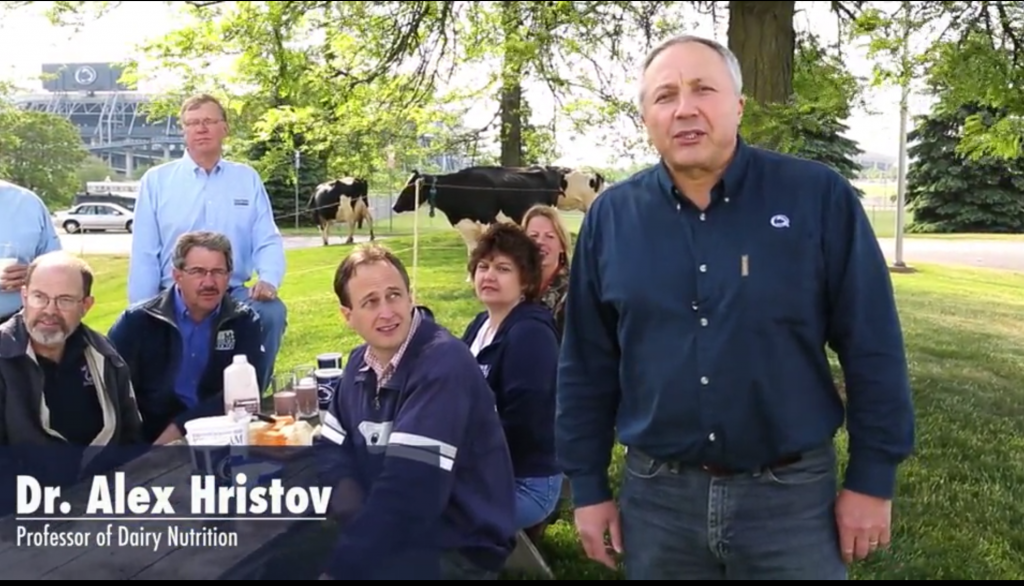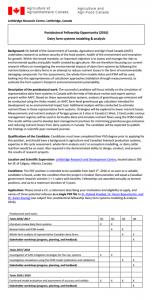ICT-AGRI (Information & Communication Technology and Robotics for Sustainable Agriculture) has launched their 2017 call on farm management systems for precision farming.
Funded by the European Commission’s ERA-NET scheme, ICT-AGRI aims to contribute to the development of an eco-efficient, resource-efficient and competitive agriculture through an enhanced and improved use of ICT and robotics. Precision Farming involves a number of digital technologies, including the Internet of Things and automated agricultural machinery, and is recognised having significant potential for the sustainable intensification of primary food production.
The topics of the call are:
- Agricultural research on use of sensor data for decision support
- Development of applications for Precision Farming
- Cases of integration of third-party applications with Farm Management Systems
For further information please download the Information for Applicants
Proposals must be submitted by 21 April 2017.

Agriculture and Agri-Food Canada (AAFC) is offering a Postdoctoral Fellowship opportunity investigating the environmental impacts of dairy farm systems. A candidate is sought to monitor nutrient balance on dairy farms in an attempt to reduce nutrient losses in the form of environmentally damaging compounds, using the whole-farm models Holos and IFSM. The candidate must have a PhD and a background in agriculture and Canadian livestock production systems, expertise in life cycle assessment, whole-farm analysis and / or ecosystem modelling, or dairy cattle nutrition.
The PDF location is the Lethbridge Research and Development Centre in Canada, and the position is intended to commence on 1 April, 2016.
To apply, email (subject line “Postdoctoral fellowship dairy farm systems modelling & analysis 2016”). a single pdf file containing your CV, a statement describing your motivation and eligibility, and three referees to:
- Dr Roland Kroebel ([email protected])
- Dr. Karen Beauchemin ([email protected])
- Dr. Karen Koenig ([email protected])
Click here for more information

 Faculty from Penn State’s Departments of Animal Science, Veterinary and Biomedical Sciences, Plant Sciences, and Agricultural Economics are developing the world’s first Dairy Production and Management MOOC (Massive Open Online Course). The course is designed to deliver fundamental knowledge and best practices related to sustainable dairy production systems in their broadest sense. Participants will gain a broad and comprehensive understanding of all aspects of dairy management including genetics, nutrition, reproduction, animal health, milk hygiene, farm economics, and sustainability of dairy production systems. There’s something in this course for everyone, whether you are just looking for the basics or have years of experience in the dairy industry. The course is launching March 7th, 2016. For more information and to register please visit the course’s website: https://www.coursera.org/
Faculty from Penn State’s Departments of Animal Science, Veterinary and Biomedical Sciences, Plant Sciences, and Agricultural Economics are developing the world’s first Dairy Production and Management MOOC (Massive Open Online Course). The course is designed to deliver fundamental knowledge and best practices related to sustainable dairy production systems in their broadest sense. Participants will gain a broad and comprehensive understanding of all aspects of dairy management including genetics, nutrition, reproduction, animal health, milk hygiene, farm economics, and sustainability of dairy production systems. There’s something in this course for everyone, whether you are just looking for the basics or have years of experience in the dairy industry. The course is launching March 7th, 2016. For more information and to register please visit the course’s website: https://www.coursera.org/
Co-hosted by the Ministry of Agriculture and Cooperatives (MoAC) of Thailand in Bangkok, the GRA organized a regional meeting to start a network on farming systems. Participating countries were Indonesia, Korea, Malaysia, Myanmar, Philippines, Vietnam and of course Thailand. With the support of Agriterra, farmer representatives from the Philippines and Indonesia also joined this meeting. The Netherlands, the current Chair of the GRA, was represented by the Co-chair of the GRA Inventory and Monitoring (I&M) Group and a policy official of the Dutch Ministry of Economic Affairs. In this two-day workshop, the countries’ policy and research representatives explored the challenges and difficulties of developing farming systems that meet the impact of a changing climate. On the first day the exchange of experiences between participants was the focus. On the second day, participants analyzed the exchanged information and identified common areas of interest. As a result they identified and agreed to put their efforts into four projects. The projects are: 1) Mixed farming systems, 2) Knowledge transfer/adoption of mitigation technologies/adaptations for GHG reduction, 3) Development of information systems for tools and technologies, and 4) Increased collaboration between policy makers, researchers and farmers. For each project, one (or two) leading countries will initiate the process. This very successful workshop makes an impressive start to the regional collaboration initiated and supported by the GRA. In the upcoming months the groups will exchange the results, and as the process continues it will be worthwhile to meet again in a year’s time.
Akarapon Houbcharaun, Thailand: [email protected] / Jan Verhagen, the Netherlands: [email protected]

